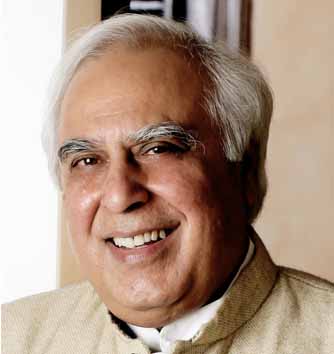
 The country’s top telecom chiefs, including Bharti Airtel Chairman Sunil Mittal, Reliance ADA-chairman Anil Ambani, Vodafone India’s CEO Marten Pieters and Idea Cellular MD, Himanshu Kapania met communications minister, Kapil Sibal on Tuesday to emphasize the industry’s apprehensions on key policy changes, especially those related to spectrum pricing and allotment.
The country’s top telecom chiefs, including Bharti Airtel Chairman Sunil Mittal, Reliance ADA-chairman Anil Ambani, Vodafone India’s CEO Marten Pieters and Idea Cellular MD, Himanshu Kapania met communications minister, Kapil Sibal on Tuesday to emphasize the industry’s apprehensions on key policy changes, especially those related to spectrum pricing and allotment.
This is the second time in as many months that a power-packed delegation of top telecom executives has met Sibal to converse the anguish of the telecom sector and seek a favorable roadmap for the future. The chief executives had met both Sibal and Prime Minister, Manmohan Singh on November 30 to put forward industry’s concerns.
Following Tuesday’s meet with Sibal, the chief executives have also met Trai chairman, JS Sarma to communicate their concerns over the regulator’s commendation on spectrum pricing, an executive with a leading mobile phone company has told.
“”All the operators suggest their views on various issues which are also a part of regulator TRAI’s recommendations on ‘Spectrum Pricing and Framework’. The Minister will take a final call on telecom commission’s suggestions soon,”” telecoms department secretary, R Chandrasekhar has told reporters after the hour-long meeting with Sibal.
An executive with another leading operator has said that companies had clarified to Sibal that proposed policy changes would impact the sector adversely. Mobile phone companies have also sought several changes to the telecom commission’s recent policy decisions on spectrum pricing, this executive has added.
The Telecom Commission, the apex body of the communications ministry, had recently permitted several policy changes related to pricing of airwaves, including slapping a one-time fee on incumbents who hold ‘excess’ 2G spectrum beyond the 6.2-MHz limit, charging new applicants for airwaves beyond the 4.4 MHz startup limit and authorization that operators pay market price for the spectrum they hold when their permits come up for renewal beginning 2014. But the TC had said that the price for 2G spectrum must be discovered through an public sale rather than the administrated formula suggested by TRAI.
It is learnt that during the meet present telcos reiterated their stance that additional payment for airwaves beyond 6.2 MHz violates license terms, contravenes bilateral settlements between government and industry and goes against judgments of telecoms tribunal and Supreme Court.
Similarly, new entrants in the GSM space such as Tatas have highlighted their antagonism towards paying for airwaves beyond 4.4 MHz and up to 6.2 MHz, and pointed out this is the minimum amount entitled to them in their permits, another executive added.
Telcos also entity to the TC’s plans to impose an 8% revenue share regime, which will also apply to tower companies and internet service contributor that are currently not subject to any license fee, as this will increase the industry’s outgo by several thousand crores annually. Instead mobile phone companies are almost for Trai’s suggestion that revenue share be reduced gradually over the next three years to 6% allowing the industry to save about Rs 6,500 crore in levies by 2014.
Article viewed on Oye! Times at www.oyetimes.com.

Be the first to comment